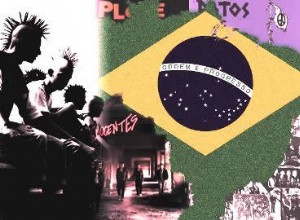Contestation, attitude, acid lyrics and few chords. In a very simple way, these would be the basic elements of a socio-musical movement that won the Brazilian music scene in the late 1970s. The so-called punk rock, fundamental carrier of the so-called punk movement, reflects specific cultural and hi




